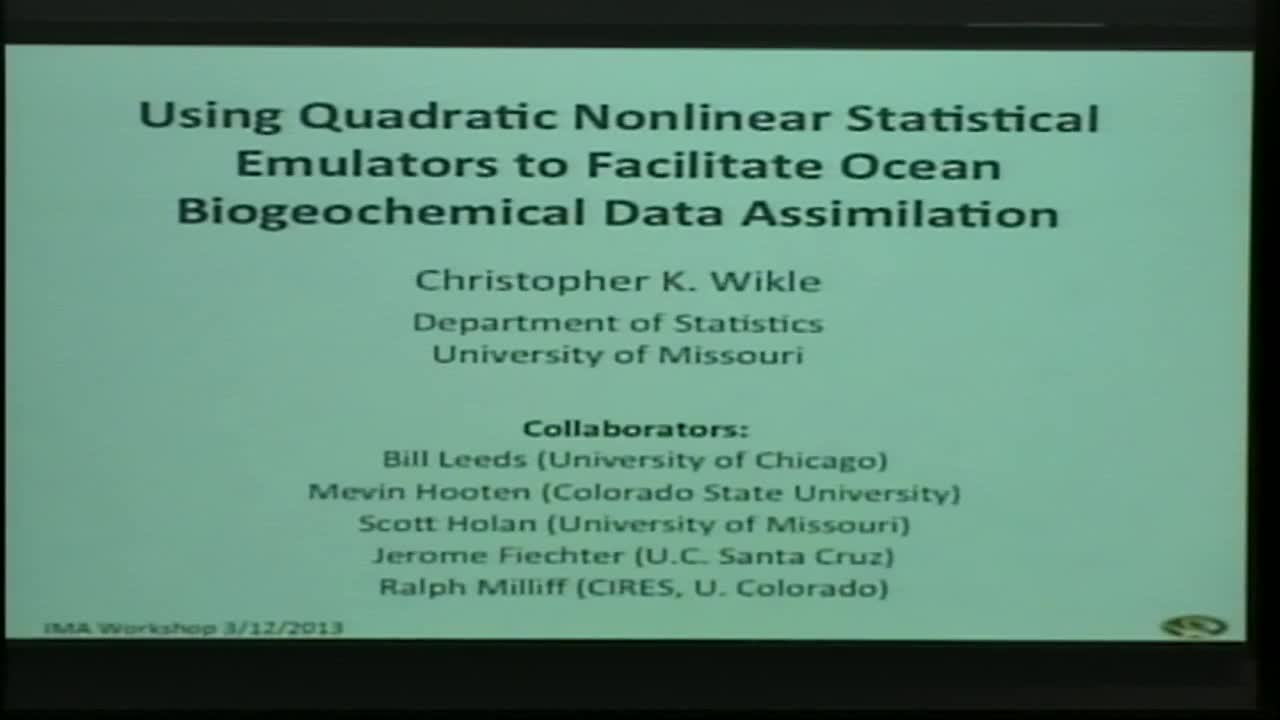Using Quadratic Nonlinear Statistical Emulators to Facilitate Ocean Biogeochemical Data Assimilation
Presenter
March 12, 2013
Keywords:
- Oceanagraphy
MSC:
- 86A05
Abstract
As environmental data sets increase in spatial and temporal extent with the advent of new remote sensing platforms and long-term monitoring networks, there is increasing interest in forecasting processes to utilize this information. Such forecasts require realistic initial conditions over complete spatial domains. Typically, data sources are incomplete in space, and the processes include complicated dynamical interactions across physical and, in many ecological applications, biological variables. This suggests that data assimilation, whereby observations are fused with mechanistic models, is the most appropriate means of generating complete initial conditions. Often, the mechanistic models used for these procedures are very expensive computationally. We demonstrate a rank-reduced approach for data assimilation whereby the mechanistic model is based on a statistical emulator that can accommodate potentially realistic quadratic nonlinearity. Critically, the rank-reduction and emulator construction are linked and, by utilizing a hierarchical Bayesian framework, uncertainty associated with the dynamical emulator can be accounted for, providing a so-called "weak-constraint" data assimilation procedure. This approach is demonstrated on a high-dimensional multivariate coupled biogeochemical ocean process in the Coastal Gulf of Alaska.
